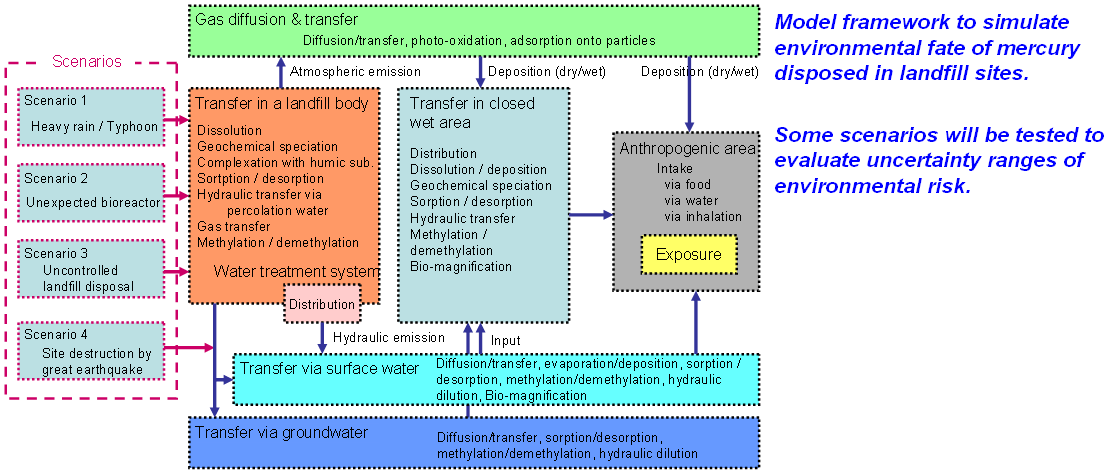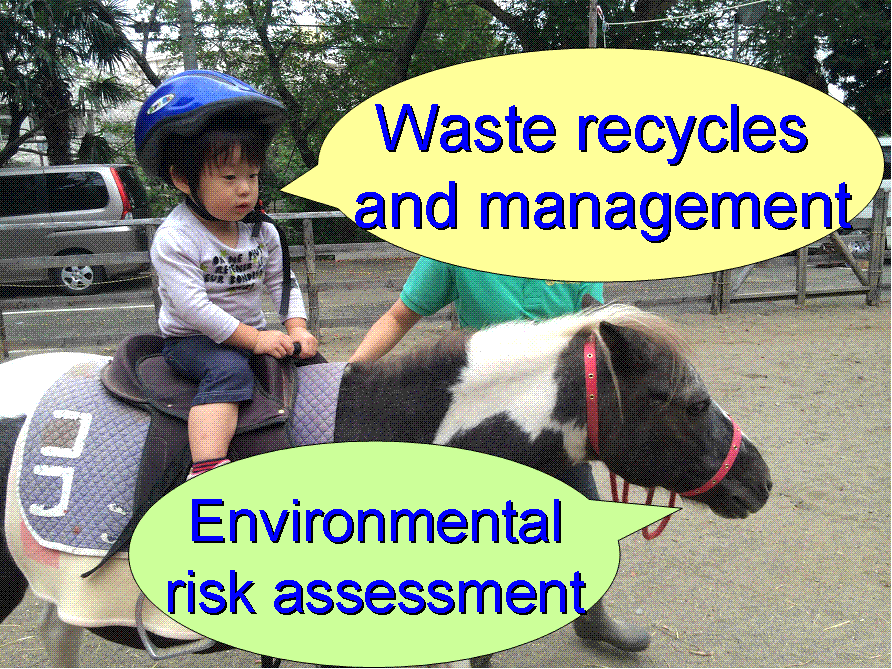Market popularity of waste-derived products in the markets is an important issue for waste recycles promotion. Therefore, my research group has tried to develop an innovative technology that enables both toxic element immobilization and high-value addition to waste-derived products. In the case of waste combustion residues, my research group is investigating chemical and mineralogical characteristics of combustion ash to know mechanisms of toxic element immobilization.

An innovative technology to give biological remediation ability to waste combustion ash, in particular melted slag, has been developed based on artificial dentinal matrix synthesis. Dentine-like apatite layer is synthesized on the surface to encapsulize toxic elements inside ash bodies and promote biofilm formation on ash surface. Microorganism activity in biofilm can remove toxic pollutants biologically. This means that treated ash can serve as bioremediation materials. In addition, we are trying coal fly ash applications to increase water holding capacity of natulal soils in arid area. This enables both recycles of fly ash generated from coal-fired power generations and antidesertification.

My research group has assessed environmental risk of waste disposals and recycles focusing on toxic metals owing to their environmental persistence. Environmental fate models for toxic and radioactive elements contained in wastes include physical, geochemical, biological reactions and kinetics in multi-phases (atmosphere, hydrosphere, and pedosphere) in order to simulate their behaviors in the environment. These simulations are helpful to evaluate their environmental risks. However, it is also important to verify model estimations.

Collected recyclable wastes always contain, more or less, other categorized materials. Incorporation of inappropriate materials increases recycle costs owing to manual separations. What psychological factor causes such inappropriate sorting in recyclable waste collection systems. My research group is investigating socio-psychological factors that have strong impact on waste collection and sorting. In addition, my research group is developing a new method to evaluate socio-psychological factors quantitatively. For example, how much do you dislike or feel resistance to sort wastes correctly? Based on these research results, my research group tries to design a new collection system of recyclable wastes, which enables psychological barrier-free for appropriate sorting and collection.

Information media like TV, newspapers, and social network services seems to give some impacts on publicity and public acceptance of renewable energy (windy power, geothermal power, biomass-fired power, etc) and waste recycles.How much impact are old and new information media giving?
We are investigating how information media has reported renewable energy and analyzing their impacts on publicity and public acceptance of renewable energy and waste recycles.

